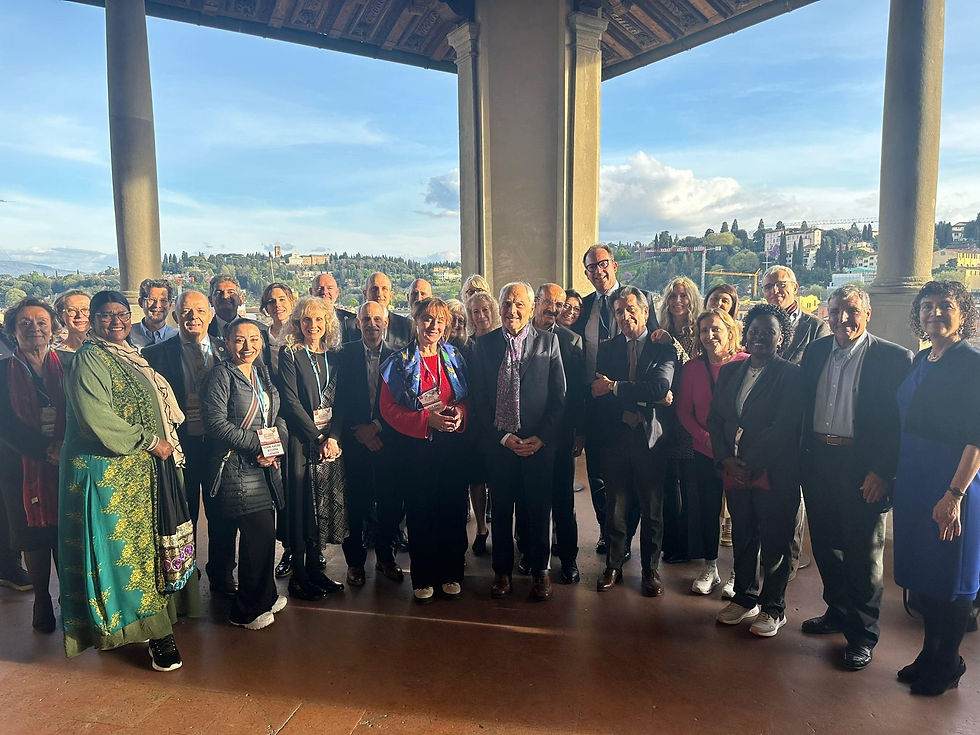First Global Manifesto Against Ageism in Healthcare Released at Anti-Ageism Alliance Congress
- Industry News

- May 7, 2024
- 2 min read
Updated: May 13, 2024
Carta of Florence proposes the prioritization of the elderly in emergency rooms; on redesigning hospitals to make them more age-friendly; and reducing isolation and bedridden immobility of patients.

The first global manifesto against ageism in healthcare was released on April 9 at the Anti-ageism Alliance congress, organized under the auspices of the Italian Society of Gerontology and Geriatrics, the International Association of Gerontology & Geriatrics, and the European Geriatric Medicine Society.
The Carta of Florence manifesto, published simultaneously in three peer-reviewed journals, was developed by global experts, including World Health Organization (WHO) representatives, and coordinated by Andrea Ungar, professor of geriatrics at the University of Florence. It identifies 12 concrete actions to combat age-related bias in healthcare and improve quality and length of life for older adults.
"Ageism is a global problem: one in two people around the world is moderately or highly ageist toward older people, with a really serious impact. It decreases physical and mental health and increases social isolation," said Alana Officer, head of the department on Demographic Change at WHO and of the Healthy Ageing campaign. "WHO is leading a global campaign to combat ageism and build a broad coalition so that we all work together to eliminate it."
The United Nations Decade of Healthy Ageing (2021–2030) has identified ageism as a global obstacle that curtails older persons’ opportunities to contribute to society, realize their full potential, and lead a fulfilling life. The World Health Organization established the Global Campaign to Combat Ageism (http:// bit. ly/ comba tagei sm) to build a world for all ages by changing the way we think, feel, and act about age and ageing.
To provide evidence-based support for the Global Campaign to Combat Ageism, the WHO, in collaboration with other UN agencies, released the landmark “Global Report on Ageism” in 2021. Recently, the U.S. National Academy of Medicine’s Global Roadmap for Healthy Longevity reinforced the need to address ageism and identified training, education and new social infrastructure that values and enables the contribution of older adults as critical steps to promoting healthy longevity as one of the core missions of healthcare systems and society as a whole.
"Although many healthcare providers around the world are working to ensure that older people receive the most advanced treatments, 40% of older people are still excluded from the best healthcare practices and from clinical trials for drug testing, with a negative effect on longevity," stressed Ungar, coordinator of the Florence Charter.
"The actions proposed in the Carta of Florence [aim] to reverse the trend [and] focus, above all, on the need to prioritize the elderly in emergency rooms; on redesigning hospitals to make them more age-friendly; and reducing isolation and bedridden immobility of patients," said Luigi Ferrucci, coordinator of the Florence Charter along with Andrea Ungar and scientific director of the National Institute on Aging in Baltimore.
"Fundamental," added Ungar, "is a change in the approach to the care of the elderly, who cannot be treated 'piecemeal,' but must be followed with an overall view by the geriatrician, as a doctor of complexity."
To download the full report, click here


Comments